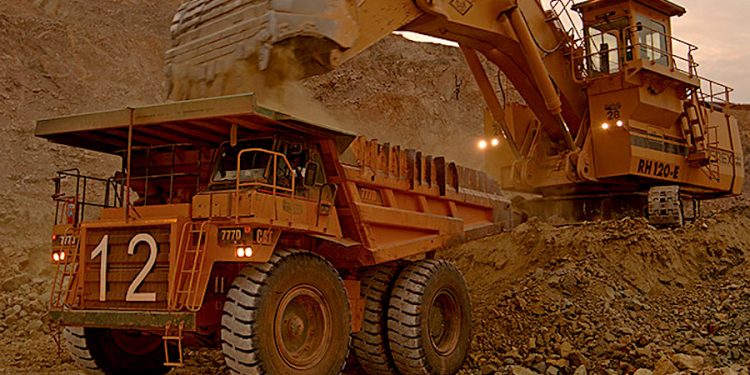Climate Talks Turn to Risks of Extracting Critical Minerals
Nations are edging closer to sounding the alarm about the perils of extracting and processing critical minerals, as they seek to emphasize the transition away from fossil fuels shouldn’t be replaced by an adoption of dirty materials instead.
For the first time, countries have included language on critical minerals — and the risks associated with their extraction and processing — in a draft-decision text at the annual United Nations climate negotiations.
While there’s no guarantee the provision will be adopted when talks continue next week, the development underscores mounting concern about supply chains for copper, cobalt, nickel, lithium and other minerals that are essential ingredients in solar panels, batteries and other clean energy technology.
The issue is no longer a “side show,” said Melissa Marengo, senior policy officer at the Natural Resource Governance Institute, which focuses on the energy transition in the Global South.
Central to the climate talks in Belém, Brazil, is countries’ 2023 commitment to shift away from using oil, gas and coal. But the world needs to recognize the embrace of low- and zero-emission energy is driving demand for minerals, “and the way these are extracted so often creates impacts that are very expensive to remediate, if it’s even possible,” Marengo said.
Under the “just transition” draft language being considered by negotiators, countries would recognize “the social and environmental risks associated with scaling up supply chains for clean-energy technologies, including risks arising from the extraction and processing of critical minerals.”
As drafted, the provision also invokes elements of a recent UN report, including its recommendations for transparently tracing supply chains; creating a legacy fund to address abandoned mines; and ramping up efforts to more efficiently use and recycle transition minerals.
The effort is tied to proposals from the European Union and the UK that won the backing of Australia, South Africa, Uganda and Burkina Faso.
Supporters are working to expand the provision by adding language recognizing that the energy transition-driven demand for critical minerals also presents opportunities for countries to develop and diversify their economies.
The same document would recognize the importance of Indigenous peoples’ rights, including to “free, prior and informed consent” for projects affecting their lands.
Concerns around critical minerals have come into sharper focus in Washington, Brussels and other capitals, as political leaders grow wary about relying on supply chains dominated by China. The US and Australia reached an agreement in October to jointly invest in mines and mineral-processing projects. And the Group of Seven launched an initiative in June to bolster allocations to critical minerals, with at least $1 billion of investments already planned.
Demand for the critical minerals used in green technology may triple by 2030 and quadruple by 2040, according to International Energy Agency estimates.
Yet the materials can be excavated in ways that drive environmental damage as well as alleged human rights abuses, including people being forced to work excavating nickel and other materials under dangerous conditions.
Activists say that without major changes, the world’s energy transition risks repeating — or even magnifying — the same ills associated with fossil fuel extraction, including limited benefits and outright harm to the communities where mining development takes place.
Instead, there should be broader benefits, said Anabella Rosemberg, a senior adviser at Climate Action Network International.
“The transition must work for the people who live beside the mines, the workers carrying the risks, the Indigenous peoples defending their homelands, and the communities in the Global South who deserve dignity and economic justice, not just promises on paper,” she said.









